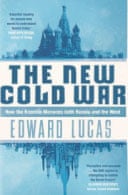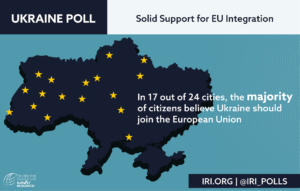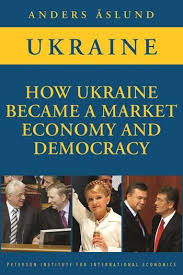A Russian court has ordered several of the Ukrainian sailors who were captured by Russian coast-guard forces during a confrontation at sea off Crimea to be held in custody for two months, while the UN chief called for restraint from both Moscow and Kyiv and Estonia’s president accused Russia of waging “war in Europe,” RFE/RL reports.
The Sea of Azov skirmish bolsters Vladimir Putin at home while delivering a masterclass in despotism to any watching dictators, according to Natalia Antonova, an editor of Bellingcat.
 With unpopular pension reform and simmering ethnic tensions in various parts of the Russian Federation, the last thing a strongman can afford is to look weak, she writes for The Guardian.
With unpopular pension reform and simmering ethnic tensions in various parts of the Russian Federation, the last thing a strongman can afford is to look weak, she writes for The Guardian.
“The good news for Putin is that he doesn’t need to care,” she asserts. “Ukrainian victims of the conflict are largely treated as irrelevant in the west – and those traditional foes of Russia are divided and demoralised.”
The timing might also have been chosen with an eye to the political calendar in Ukraine, which is gearing up for a presidential election next March, notes analyst Anne Applebaum, a board member of the National Endowment for Democracy. Perhaps the Russians want to inject a polarizing element into an already divided society; perhaps this is an answer to the Ukrainian Orthodox Church’s decision to break away from Russia; perhaps they want to provoke a postponement of the election altogether, she writes for The Washington Post:
 In a narrow sense, they may already have succeeded in changing the political atmosphere. At a late-night meeting Sunday, President Petro Poroshenko — now far behind in the polls — called for a period of martial law in part of the country, and parliament voted Monday to impose it. It’s not clear yet what this means. It seems just to include military mobilization — Poroshenko has said there will be no restrictions on media or public gatherings, and no postponement of the election — but accusations of election meddling are already flying.
In a narrow sense, they may already have succeeded in changing the political atmosphere. At a late-night meeting Sunday, President Petro Poroshenko — now far behind in the polls — called for a period of martial law in part of the country, and parliament voted Monday to impose it. It’s not clear yet what this means. It seems just to include military mobilization — Poroshenko has said there will be no restrictions on media or public gatherings, and no postponement of the election — but accusations of election meddling are already flying.
 The right response would have combined kinetic, symbolic, and financial measures. A NATO naval flotilla in the Black Sea would pay a friendly visit to Mariupol. Bilateral military assistance to Ukraine would be stepped up, CEPA’s Edward Lucas, author of The New Cold War, contends:
The right response would have combined kinetic, symbolic, and financial measures. A NATO naval flotilla in the Black Sea would pay a friendly visit to Mariupol. Bilateral military assistance to Ukraine would be stepped up, CEPA’s Edward Lucas, author of The New Cold War, contends:
The EU would send its tongue-tied foreign policy chief, Federica Mogherini, to Kyiv. Western countries would announce a temporary ban on official and business visas for Russians. Countries like Britain would announce forthcoming legislation to restrict the rights of anonymously-owned “shell” companies to buy property or access the financial system. That would signal seriousness.
The Kremlin is working to undermine our democracy, to crush Ukrainians’ European ambitions, and to bring Ukraine back under Russian colonial control, argues Maxim Eristavi, a Ukrainian journalist and nonresident research fellow at the Atlantic Council. Even so, the decision to introduce martial law will help Russian President Vladimir Putin achieve his aims even faster than his own military bullying, he writes for The Post:
 Ukraine’s fragile democracy may not survive it. Poroshenko suspended the election campaign for the first vote since the 2014 Maidan Revolution, which promised a peaceful change of power. Having lost all popular support (and bringing his polls down to historic lows), he has now awarded himself all-encompassing emergency powers. The Ukrainian government did not, in the past, resort to martial law during the more extreme episodes of Russian aggression.
Ukraine’s fragile democracy may not survive it. Poroshenko suspended the election campaign for the first vote since the 2014 Maidan Revolution, which promised a peaceful change of power. Having lost all popular support (and bringing his polls down to historic lows), he has now awarded himself all-encompassing emergency powers. The Ukrainian government did not, in the past, resort to martial law during the more extreme episodes of Russian aggression.
 If Russia’s actions were premeditated and well prepared, that begs the question, why did the Russian president choose to act now? Anders Aslund asks in POLITICO:
If Russia’s actions were premeditated and well prepared, that begs the question, why did the Russian president choose to act now? Anders Aslund asks in POLITICO:
The likeliest reason is that Ukraine is gearing up for a presidential election in March 2019. If Ukraine is under military pressure from Russia — as it has been since 2014 — and still able to administer free and democratic elections, that would be a major embarrassment for Putin, regardless of the election’s outcome. In that regard, if Petro Poroshenko had imposed the full scope of martial law and delayed or cancelled the election, it would have been a godsend for Putin.
“If democracy was in danger, it has been salvaged, for now,” Aslund argues.







